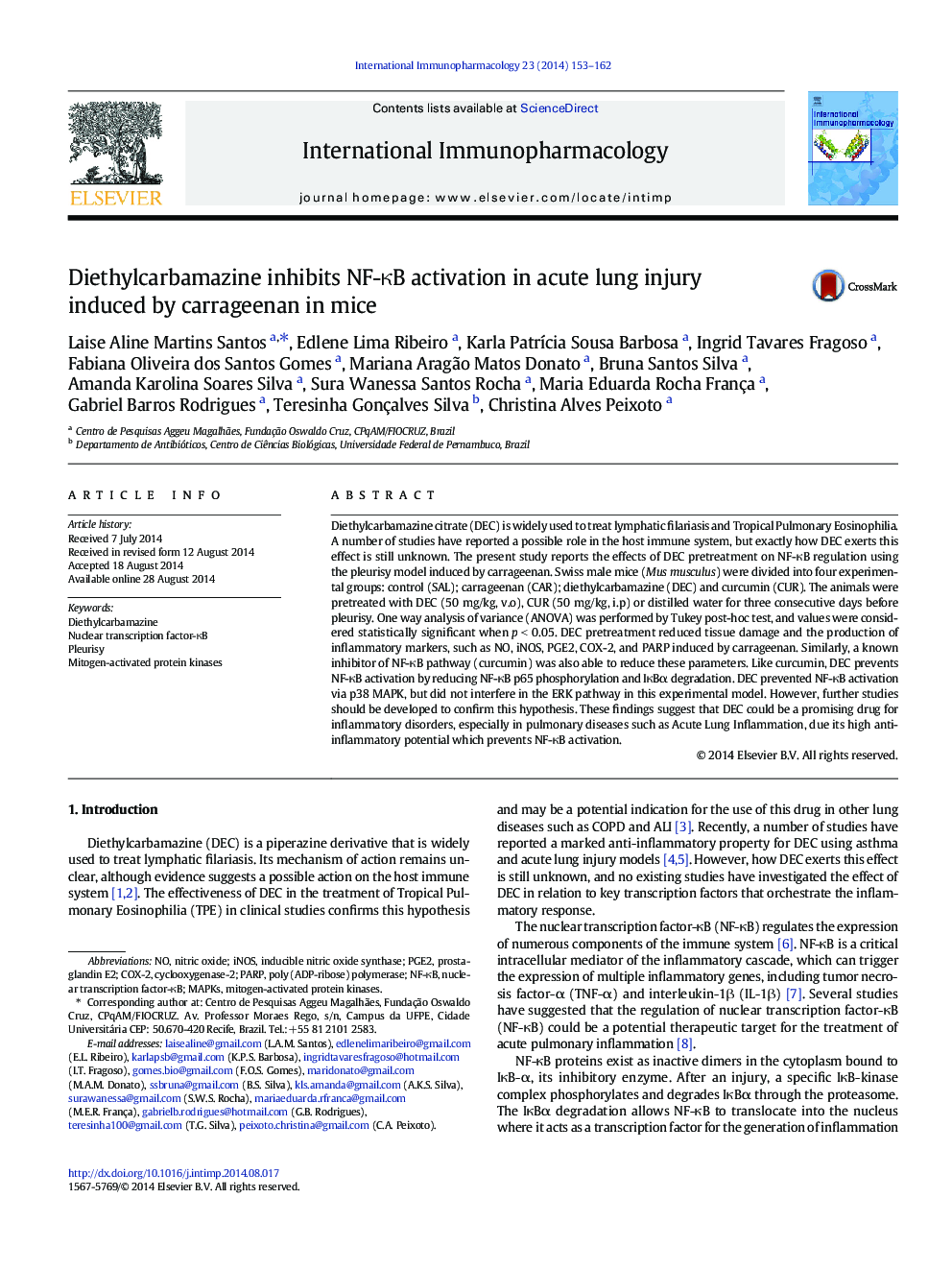| Article ID | Journal | Published Year | Pages | File Type |
|---|---|---|---|---|
| 2540700 | International Immunopharmacology | 2014 | 10 Pages |
•DEC reduced lung tissue damage and prevents NO and PGE2 production.•The DEC efficacy was similar to Curcumin treatment, a known NF-κB inhibitor.•DEC prevents NF-κB activation via p38 MAPK.
Diethylcarbamazine citrate (DEC) is widely used to treat lymphatic filariasis and Tropical Pulmonary Eosinophilia. A number of studies have reported a possible role in the host immune system, but exactly how DEC exerts this effect is still unknown. The present study reports the effects of DEC pretreatment on NF-κB regulation using the pleurisy model induced by carrageenan. Swiss male mice (Mus musculus) were divided into four experimental groups: control (SAL); carrageenan (CAR); diethylcarbamazine (DEC) and curcumin (CUR). The animals were pretreated with DEC (50 mg/kg, v.o), CUR (50 mg/kg, i.p) or distilled water for three consecutive days before pleurisy. One way analysis of variance (ANOVA) was performed by Tukey post-hoc test, and values were considered statistically significant when p < 0.05. DEC pretreatment reduced tissue damage and the production of inflammatory markers, such as NO, iNOS, PGE2, COX-2, and PARP induced by carrageenan. Similarly, a known inhibitor of NF-κB pathway (curcumin) was also able to reduce these parameters. Like curcumin, DEC prevents NF-κB activation by reducing NF-κB p65 phosphorylation and IκBα degradation. DEC prevented NF-κB activation via p38 MAPK, but did not interfere in the ERK pathway in this experimental model. However, further studies should be developed to confirm this hypothesis. These findings suggest that DEC could be a promising drug for inflammatory disorders, especially in pulmonary diseases such as Acute Lung Inflammation, due its high anti-inflammatory potential which prevents NF-κB activation.
